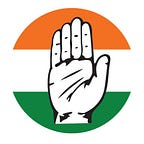Remembering Rajiv Gandhi: The visionary who changed the story of India
India is an old country, but a young nation; and like the young everywhere we are impatient. I am young, and I too have a dream. I dream of an India strong, independent and self-reliant and in the front rank of the nations of the world in the service of mankind.’ — Rajiv Gandhi.
The youngest Prime Minister of India at just 40, Rajiv Gandhi’s legacy lives on as India prospers. A true visionary, he was responsible for the technological revolution that continues to be the reason India is one of the leading countries in Information Technology. In 1985, he was instrumental in global manufacturing and design firms into India kickstarting the Indian IT revolution. During his tenure as Prime Minister, he initiated the Mahanagar Telephone Nigam Limited (MTNL) in 1986 and initiated Public Call Offices (PCOs) to be spread in rural areas to improve connectivity.
Understanding the aspirations of the people, he committed himself to ensuring his policies improved the lives of the masses. He strengthened the panchayats so the decision making could be decentralisation at the grassroots. It was no longer some politician sitting in New Delhi who would make decisions about water supply, or roads in a village in Amethi, for instance. It was left to the people to make decisions for themselves, and who better than the people themselves to understand issues that matter to the most? In his effort to understand the problems faced by the people of the country, Rajiv Gandhi met thousands of elected representatives from Panchayats from around the country. It was his vision that led to the 33% reservation for women in Panchayats and municipal bodies in 1993, changing the face of village-level political participation forever.
His unparalleled work on liberalisation, investments, privatisation, tax reforms, deregulation and measures to control inflation formed the foundation for economic reforms pushing the Indian economy to a strong path of growth. “The Indian economy is caught in a vicious cycle of creating more and more controls. Controls really lead to all corruption, to all the delays, and that is what we want to cut out,” he said in 1985, something that finds resonance even in contemporary politics, as we talk about Ease of Doing Business rankings. Introducing competitiveness into the public sector he supported the increasing the role of private businesses including taking over non-performing public sector enterprises. His policies of de-licensing and reforms are what led to capital cost-cutting, maximum capital, and capacity utilisation. Wherever it was necessary, he did not dither from taking definitive steps in re-shaping how things used to get done in India. As a pragmatist, he did not care about labels, if the need of the decade was more privatisation, he would support it unflinchingly. This is also reflected in the ideology of the Congress party, which is not constrained by the parochial straitjackets of political ideology, but believes that the good of the maximum number of people is the final goal of any initiative.
Committed to harnessing the unbridled energy of the youth of India for nation-building, he reduced the age for voting from 21 to 18, adding 5 crore people to the electoral system. He was responsible for Operation Blackboard, Sarva Shiksha Abhiyan that revolutionized the education for millions. He modernised and expanded the education sector so it would be accessible to the masses and his new education policy also led to the formation of the Indira Gandhi National Open University. This was no mean feat, as it opened the doors of open learning for those not privileged enough to pursue regular education. Without IGNOU, millions without privilege would be denied their right to pursue an education, without necessarily having to attend physical classes.
On his death anniversary, we remember the politician who envisioned India as a global superpower and took rapid strides to accomplish this dream. Though Rajiv Gandhi was initially reluctant to join politics, preferring instead to live a private life, the death of his brother led to him joining politics and the death of his mother led to him becoming Prime Minister. Yet, despite the personal toll, he remained committed to the service of his nation, to his last breath.
